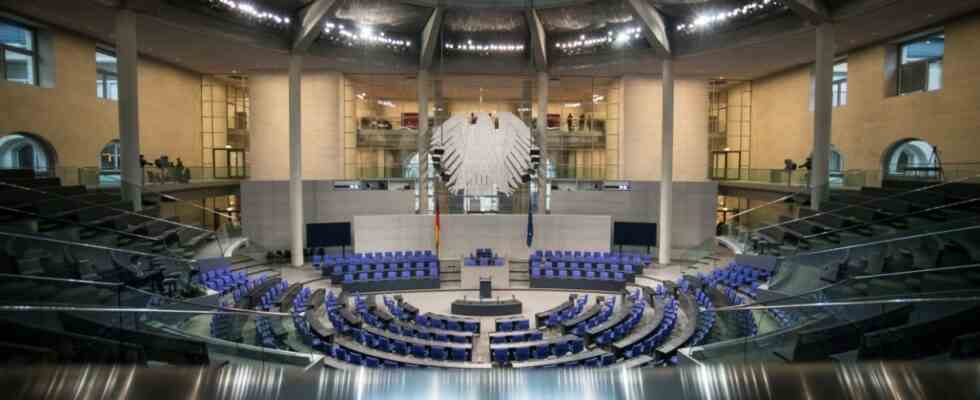They were pictures that were supposed to carry a message across the country: the dispute between the CDU and CSU is over. At the beginning of last year, Friedrich Merz and Markus Söder met at Kirchsee for a walk. Of course, quite by accident, a photographer was also present. And that’s how pictures of the two party leaders were taken on a footbridge with the Alps in the background – or sitting on a bench, having a friendly conversation. Because Söder is someone who reinforces the obvious for safety, he tweeted: “Restart: CDU and CSU are working closely together again. Good and intensive coordination with Friedrich Merz in Bavaria.”
That was actually news at the time. Because Merz and Söder had not been close friends in previous years. And the “restart” worked for a surprisingly long time. But now there is a crisis again between the CDU and CSU.
The traffic light “lays the ax on the foundations of democracy,” the CSU rumbles
The fact that Söder launched a frontal attack on the state financial equalization before the Berlin parliamentary election, which is important for the CDU, from which Berlin benefits enormously, has caused considerable resentment in the CDU. “Before the Bavarian state elections, the CSU no longer knows any friends,” complains one of the leaders of the CDU. The advance in the financial equalization of the federal states should therefore have been “only the first of many ricochets from Munich”.
But there is another important issue that is currently dividing the sister parties – the right to vote. An effective reduction in the size of the Bundestag has been discussed for more than ten years, and the time will come next week: the traffic light coalition wants to pass its draft law in the Bundestag. Instead of the current 736 MPs, there will only be 598 in the future.
But the CSU claims that the traffic light with its draft law would “lay the ax on the foundations of democracy”. CSU General Secretary Martin Huber even accused the traffic light of “organized election fraud” that reminded him of “rogue states”. The CDU is appalled by this tone.
The growth of the Bundestag is due to the overhang and compensation mandates. The SPD, Greens and FDP therefore want to abolish them. This does not change the majority in the Bundestag. However, it can happen that in individual cases someone who receives the most votes in the constituency does not get a mandate in the Bundestag. This is condemned not only in the CSU, but also in the CDU. But the CDU also knows who is to blame for the fact that the traffic light can now change the right to vote in this way.
Even when the Union was still in power, the CSU blocked the reform
Norbert Lammert and Wolfgang Schäuble (both CDU) warned the Union when they were President of the Bundestag: if you don’t decide on a reform of the electoral law yourself, others will eventually do so. In the past legislative period, Ralph Brinkhaus, leader of the Union faction at the time, was also willing to reach a cross-party agreement. But the CSU always insisted ironically on its interests and thus blocked an effective reform.
Because of these years of deadlock, the Union is now in a difficult position. She is in the opposition and can no longer shape anything herself. And if she rejects the traffic light bill in the coming week, she must fear being branded as a defender of the oversized Bundestag. Many in the CDU are angry that the CSU put them in this position. Friedrich Merz now wants to put the issue of voting rights behind him as quickly as possible.
But the CSU wants to extend the debate. The Christian Socialists have announced that they want to take legal action against the traffic light law before the Federal Constitutional Court. From the point of view of most of the CDU leadership, this is a mistake – also because they believe that the lawsuit will probably be unsuccessful. In any case, however, this would give the public the impression that the Union is against a reduction in the size of the Bundestag, according to the CDU leadership.
Merz has therefore made it clear internally that he is against a lawsuit from the Union faction. If the CSU members of the Bundestag absolutely want a decision from the constitutional court, they should ask Söder to move to Karlsruhe with his Bavarian state government, the CDU says sarcastically. The good mood from Kirchsee seems to have faded after a year.

